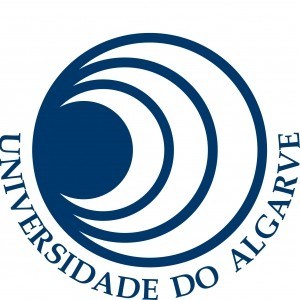Photos of university / #cudenver
The School of Pharmacy is characterized by a vigorous research environment. A major research emphasis area is toxicology which studies the adverse effects of drugs and xenobiotics on the body. Toxicology is the biomedical science concerned with understanding the adverse effects of chemicals and other dangerous substances on living organisms.
Toxicologists seek to identify the toxic effects of drugs and chemicals on living organisms, and to understand the underlying molecular and cellular mechanisms associated with toxic injury. In doing so, toxicologists use state-of-the-art biological and chemical techniques to answer questions such as: how dangerous are chemicals to man? How much exposure is required to cause harm? What are the effects of such chemical exposures
The objective of the toxicology graduate program at the University of Colorado is to educate pre-doctoral students to develop independent research careers in molecular and environmental toxicology. Upon completion of the toxicology graduate program, students will receive a PhD degree in toxicology and utilize their training in academia, industry or government.
The PhD program in Toxicology trains graduate students to become proficient and successful investigators who are able to:
- Demonstrate a basic knowledge of central concepts in the biomedical sciences.
- Understand the current concepts in toxicology.
- Read and critically evaluate the scientific literature.
- Generate hypotheses based on current concepts in the field. Then design, conduct, and interpret their own research projects.
- Communicate research results effectively through oral presentations at scientific seminars, conferences, and other venues.
- Present research results in national meetings, peer-reviewed publications and in a dissertation.
- Write a grant proposal.
The current program consists of 28 full time pre-doctoral students and 37 full time toxicology graduate faculty members. The toxicology graduate faculty have primary appointments in the School of Pharmacy, the School of Medicine, the Webb-Waring Antioxidant Research Institute, the National Jewish Medical Center or the Rocky Mountain Poison and Drug Center.
Research opportunities for trainees cover the breadth of toxicology with major strengths in cancer/carcinogenesis/chemoprevention, oxidative stress and antioxidants, neurotoxicology, pulmonary toxicology, hepatotoxicology, pharmacogenetics, pharmacogenomics, immunotoxicology, nanotoxicology and clinical toxicology.
In addition to graduate students, there are many postdoctoral fellows, highly trained technicians and undergraduate researchers within the Toxicology program. After students complete their coursework and choose a project, they become essentially full-time researchers until the dissertation is submitted to the faculty. Students normally attend and present their research results at national scientific meetings. Communication with scientists at other institutions is considered an important facet of research training.
The normal requirements for admission to the graduate program in toxicology include a bachelor of arts or science degree from an accredited institution, an academic record which satisfies the minimum admission requirements established by the CU Graduate School and results of the Graduate Record Examination (GRE). All applicants for the program should have completed a year of study in the following subjects: general chemistry, organic chemistry, calculus, biology, English and physics. In addition, courses in the following subjects are highly recommended to supplement the student's background: physiology, biochemistry, statistics, cell biology, physical chemistry, and computer science.
Under special circumstances, deficiencies in important areas may be made up within the first year after entrance into the program. Normally, admission to the program will be based on an undergraduate GPA of 3.0 or better and a GRE score of 160 (verbal), 148 (quantitative) and 4.0 (analytical writing). However, applicants' recommendations, research experience and additional individual accomplishments will also be considered in the admissions process.
The student stipend is $27,000 per year. Based on the rules of the UCD graduate school, all PhD students in good academic standing are guaranteed financial support.
Although a priority of the School of Pharmacy is to provide financial support to its graduate students, stipend, tuition and fees for graduate studies in the School of Pharmacy are the sole responsibility of the student. Payment of stipend, tuition and any fees by the School of Pharmacy or by grants, contracts or gifts to the School of Pharmacy Faculty is contingent upon satisfactory academic progress (as defined by the UCD Graduate School, Graduate Student Handbook) and completion of required core courses, seminars, research rotations and examinations. The School of Pharmacy also reserves the right to review and adjust its funding policies at any time. Stipends are awarded on a 12-month basis. All students are expected to work towards program requirements for 12 months of the year.










